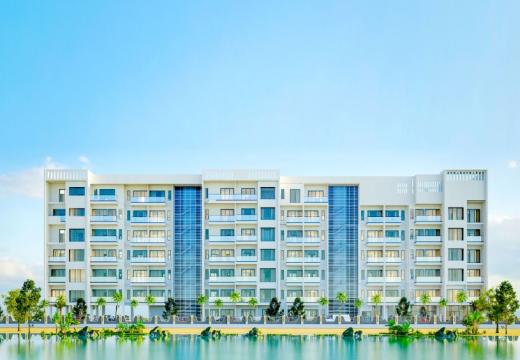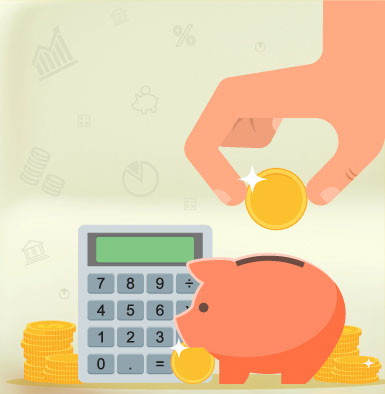How To Buy An Investment Property In Ghana
How To Buy An Investment Property In Ghana
- by PropHunt Admin
- On 21-01-2024
- at 5:43 PM

Property ownership has long been seen as the great Ghanaian dream, but research has proven what we have already suspected. It’s no longer just a dream; it’s an obsession. Over the years, the real estate market in Ghana has proven to be a major prospect for investors to diversify their investment capital.
With the total value of residential real estate in Ghana predicted to reach US$389.10 billion in 2024. It is evident that those hours of obsession have become a popular source of wealth creation for Ghanaians, despite the market having witnessed a shortfall in 2023.
While the market failed to attract many real estate investors last year amid the high rate of interest hikes, GDP third-quarter data from the Ghana Statistical Service showed new real estate growth of 1.2% despite 2023 experiencing an unending increase in the monetary policy rate by the Bank of Ghana.
The continued increase in the monetary policy rate has caused a degree of concern among young graduates, who argue that high-interest rates by mortgage institutions turn something as basic as housing into an unaffordable, speculative asset class. Many public service workers who retired before they could own a home make the most of their time trying to build a house.
In any case, more and more Ghanaians are beginning to utilise the wealth-building potential of real estate. Here’s a guide on how to buy an investment property in Ghana and what you should know before joining the vehicle of wealth building.
The Pros of Buying an Investment Property in Ghana
Of course, there are several issues worth weighing before you decide whether to invest in property in Ghana. Some of the positive factors of investing in properties are discussed below:
1. Low Risk
Generally, investing in a property is considered less risky compared to bonds and stock investments. Often, investing in properties doesn’t require any special knowledge, such as what is required in a niche market. It also comes with ample benefits, such as capital gains, rental yields, and tax deductions, which we’ll explore below.
2. Property Value Appreciation
Capital growth refers to the increase in the underlying property's value over time, which is calculated by comparing the current market value with your initial purchase price. For example, if you purchased a property in Ghana for GHC1,000,000 ten years ago and it is now worth GHC9,000,000, you’ve made GHC4,000,000 in capital.
3. Rental Yield
While capital growth is the long-term increase in the value of your property, rental yield is the annual income you receive from your tenants as a percentage of your property’s value. For example, if you own a property worth GHC500,000 and you receive GHC25,000 in rent each year, your rental yield is 5%. Rental yield can help you determine how much money you can expect to earn from your property each year.
There are a few factors that can affect rental yield, including:
Location: Properties in desirable locations with high demand for rental housing tend to have higher rental yields.
Property type: Rental yields are typically higher for apartments and townhouses than for single-family homes.
Condition of the property: Properties that are in good condition and well-maintained tend to have higher rental yields.
Tenant pool: Properties in areas with a strong tenant pool, such as near universities or major employers, tend to have higher rental yields.
4. Tangible assets
For some investors, a major driving factor for investing in property in Ghana is its tangibility, and individual investors can see their investment in its physicality. But for many reasons, properties are usually not considered liquid assets like shares. This tangibility provides confidence and total control for property investors, something that isn’t guaranteed when investing in the Ghana stock market.
Cons of Buying an Investment Property in Ghana
Despite the many pros of investing in property in Ghana, there are some cons associated with buying an investment property in Ghana that potential investors need to consider before jumping into the Ghanaian real estate market.
1. Demand is a strong indicator of the market
Every property investor takes demand as the number one factor in assessing the prospects of any real estate market. This is done to make sure that the space you'll be providing will meet demand. Thus, the demand makes the market fluctuate. Though the property market isn’t anywhere near as volatile as the stock market, it does still fluctuate in demand over time.
Let's consider a demand increase for a particular property type, say 2-bedroom apartments in Accra. Prices of such properties will rise because of the demand. Also, if the demand for single-room self-contained falls, all other things being equal, the prices of that category of properties will fall.
2. Property investing is capital-intensive
Unlike the stock market, the property market is purely capital-intensive. It does make it both financially difficult to enter and exit. Mind you, there are sweeping entry expenses, including stamp duty, legal fees, and real estate agent fees, which you'll have to incur before owning an investment property in Ghana. Because properties are not liquid assets like shares, you must wait to sell your property in a hurry if you need cash quickly.
3. The stress of finding tenants
While rental yield is a convincing prospect for potential property investors in Ghana, it comes with its challenges. The stress of finding reliable tenants to pay rent consistently becomes a major challenge in property investment in Ghana. However, there are other responsibilities along with the tenancy, which includes management costs and requirements associated with renting a property in Accra. Don't be surprised that there will be periods when the property is vacant and you will need to find new tenants, and this could potentially bring extra cost to the investor.
What Type of Property Makes a Good Investment in Ghana?
There are many investment merits to owning a property in Ghana, but it’s also a decision that should not be taken lightly. It’s important to consider the location of your property investment and what type of property is best suited in that neighborhood. Let's go through the common types of property investments in Ghana.
Houses vs Apartments vs Single Room Self-Contained
Yes, it is recognized that choosing to invest in a house, an apartment, or a single-room self-contained is purely dependent on the intentions of the investor. But it’s important to do your calculations before buying an investment property and weigh the rental yield and return you’ll get on the investment, as well as keeping in mind the costs associated with owning property in Ghana.
Investing in houses in Accra will fetch you prestige but not necessarily provide the rental yield you expect. House construction consumes too much space, including parking, a backyard, a fence wall, and other structural spaces. The value of a house in Accra does not always reflect its rent. For example, a $500,000 three-bedroom apartment in Accra might be rented out for $1,000 per month, whereas a $500,000 three-bedroom house in the same suburb might only fetch a rent of $750 per week.
Single-room self-contained has turned out to be the favorite for young graduates who are looking for housing for their immediate needs and do not need extra housing space that will be a liability. Over the past years, demand for single-room self-contained has been on the rise in Accra, and that trajectory seems to continue since single-room self-contained apartments are considered affordable, convenient, and provide a sense of comfort.
Affordability is a major factor for young graduates when choosing a housing option. This is the main reason why real estate developers need to shift their attention from luxury apartments to single-room self-contained in Accra. Single-room self-contained homes are a type of housing that is less expensive and more affordable than a one-bedroom house or apartment in Accra.
Conclusion
With the initial cost and the ongoing requirements, potential real estate investors in Ghana need to be aware that investing in property cannot always guarantee regular income. While the growing demand for rental property in Accra for the last half of 2022 may seem like an enticing prospect to investors, it’s important to do your research, talk with local experts and specialists, and consider your finances before jumping on your journey to property investing in Ghana.

 French
French




